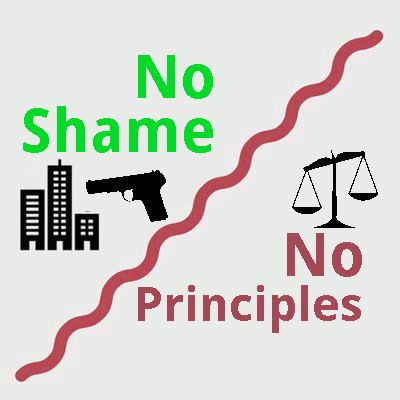

Proponents of Prop C like to pose that the LPSF doesn’t think they have a plan to address homelessness in The City. In fact, we do believe they have a plan. This is a deflection from our real concern, which is that in order to fund their plans, they feel entitled to dip their fingers into local company coffers to “raise more revenue”. That’s a great euphemism for “stealing”.
The Libertarian Party is the Party of Principle. When we consider any proposal, we apply common-sense principles in order to gauge whether that proposal is just. Taxing businesses who have not caused the problem in order to fix that problem is unjust.
We don’t stand for big business, we stand on principle. Our position is not political, it is logical. We are not interested in "protecting corporate profits", we are interested in protecting rights. I challenge the proponents of C to provide a justification for funding their plan that is not merely an appeal to emotion.
“They can afford it” is not a sound argument for imposing a tax. NoPlanSF writes “The additional tax would be less than 1% of their gross revenues.” It doesn’t matter if it’s 1% or 50%; it’s 100% not yours. Neither does it matter that corporations are “enjoying many millions more from Trump's giant corporate tax cut”. If the 8th graders at school cut back on bullying your 6th grade son, does that make it okay for the 7th graders to start shaking him down for lunch money? These kinds of arguments are irrelevant to the actual discussion, just an appeal to emotion by the so-called “progressives” that want you to join their mob.
As a concerned citizen, you may be conflicted. This proposition won’t cost you anything (you think). After all, you don’t make over $50 million, and homelessness is definitely a serious problem that needs to be addressed. So, isn’t it okay to take a just little bit from the people who have a lot in order to help those who don’t have enough?
Well, let’s consider another example. If a homeless person asks you for change as you’re walking down the street and you keep walking, are they justified to pull a knife on you and force you to fork over $10? You have a comfortable lifestyle. You can afford it (they only want $10). And yet, you probably are not okay with this scenario. Is it because there is someone more well-off that they could have robbed instead? How about your boss at work— she earns more than you. If they robbed her instead, then it might be okay. Would it? How about her boss?
When presented with a problem that needs solving, one might be inclined to seek retribution from the source that caused that problem. If someone who can no longer afford to pay their rent loses their home, who is to blame? Of course we feel empathy for this person; they are a human being and deserve to be treated with dignity and respect. It would be uncompassionate of us to let them starve on the street. However, neither is it compassionate to demand someone else provide for them.
Compassion necessitates voluntary human action. There are many charities in the Bay Area that fund homelessness services, for example Larkin Street Youth Services. This organization provides valuable help that is needed and receives a decent chunk (30%) of their funding through voluntary donations (much of it from corporations, even— imagine that!). This problem can be solved without coercion. No, it’s not as easy; but tough problems have tough solutions.
Rhetoricians will tout how great their plan is. They're going to make everything better. All they have to do is demonize the big bad corporations enough for you to not care about their rights or what happens to them. They’ll be fine anyway. Successful businesses are successful for a reason. They will recover that lost revenue in increased prices. And if you hit them too many times, they might just pack up and leave. Then the only big bad guys left in town will be in City Hall.
